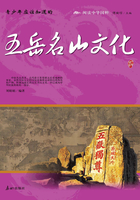Burglary, the demolition of houses, public assassination and murders, were events of everyday occurrence.At first the authors of these deeds prowled about singly, and masked; soon large gangs of armed men went to work every night without disguise.Threatening letters, satires, and scandalous jests circulated freely; and a sonnet in ridicule of the Government seems to have roused its indignation far more than the frightful condition of the city.In many churches the sacred vessels with the host were stolen, and this fact is characteristic of the temper which prompted these outrages.It is impossible to say what would happen now in any country of the world, if the government and police ceased to act, and yet hindered by their presence the establishment of a provisional authority; but what then occurred in Italy wears a character of its own, through the great share which the personal hatred and revenge had in it.The impression, indeed, which Italy at this period makes on us is, that even in quiet times great crimes were commoner than in other countries.We may, it is true, be misled by the fact that we have far fuller details on such matters here than elsewhere, and that the same force of imagination, which gives a special character to crimes actually committed, causes much to be invented which never really happened.The amount of violence was perhaps as great elsewhere.It is hard to say for certain, whether in the year 1500 men were any safer, whether human life was any better protected, in powerful, wealthy Germany, with its robber knights, extortionate beggars, and daring highwaymen.But one thing is certain, that premeditated crimes, committed professionally and for hire by third parties, occurred in Italy with great and appalling frequency.
So far as regards brigandage, Italy, especially in the more fortunate provinces, such as Tuscany, was certainly not more, and probably less, troubled than the countries of the North.But the figures which do meet us are characteristic of the country.It would be hard, for instance, to find elsewhere the case of a priest, gradually driven by passion from one excess to another, till at last he came to head a band of robbers.That age offers us this example among others.On August 12, 1495, the priest Don Niccolo de' Pelagati of Figarolo was shut up in an iron cage outside the tower of San Giuliano at Ferrara.He had twice celebrated his first mass; the first time he had the same day committed murder, but afterwards received absolution at Rome; he then killed four people and married two wives, with whom he travelled about.He afterwards took part in many assassinations, violated women, carried others away by force, plundered far and wide, and infested the territory of Ferrara with a band of followers in uniform, extorting food and shelter by every sort of violence.When we think of what all this implies, the mass of guilt on the head of this one man is something tremendous.The clergy and monks had many privileges and little supervision, and among them were doubtless plenty of murderers and other malefactors--but hardly a second Pelagati.It is another matter, though by no means creditable, when ruined characters sheltered themselves in the cowl in order to escape the arm of the law, like the corsair whom Masuccio knew in a convent at Naples.What the real truth was with regard to Pope John XXIII in this respect, is not known with certainty.
The age of the famous brigand chief did not begin till later, in the seventeenth century, when the political strife of Guelph and Ghibelline, of Frenchman and Spaniard, no longer agitated the country.
The robber then took the place of the partisan.
In certain districts of Italy, where civilization had made little progress, the country people were disposed to murder any stranger who fell into their hands.This was especially the case in the more remote parts of the Kingdom of Naples, where the barbarism dated probably from the days of the Roman 'latifundia,' and when the stranger and the enemy ('hospes' and 'hostis') were in all good faith held to be one and the same.These people were far from being irreligious.A herdsman once appeared in great trouble at the confessional, avowing that, while making cheese during Lent, a few drops of milk had found their way into his mouth.The confessor, skilled in the customs of the country, discovered in the course of his examination that the penitent and his friends were in the practice of robbing and murdering travellers, but that, through the force of habit, this usage gave rise to no twinges of conscience within them.We have already mentioned to what a degree of barbarism the peasants elsewhere could sink in times of political confusion.















